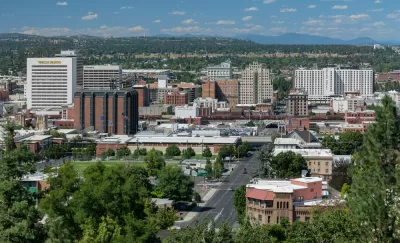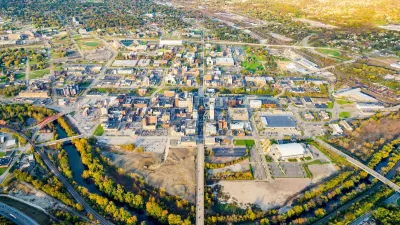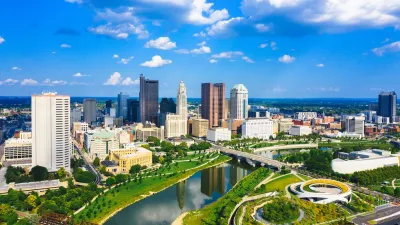Cities like Spokane, Washington courted new residents and businesses during the pandemic. Now, they're starting to wonder if it was worth it.

As housing prices continue to soar across the country and remote workers seek out new communities to buy homes and settle in, affordability is becoming an urgent issue in more and more small towns.
This is quickly becoming the case in Spokane, Washington, reports Conor Dougherty for The New York Times, where home prices rose by 60 percent in the last two years. A report commissioned by the Spokane Association of Realtors "warned of 'significant social implications' if the city doesn’t tackle housing. The issues included young families not being able to buy or taking on excessive debt, small businesses not being able to hire, difficulty keeping young college graduates in town."
Being an 'it' place was something Spokane’s leaders had long hoped for. The city and its metropolitan region have spent decades trying to convince out-of-town professionals and businesses that it would be a great place to move. Now their wish has been granted, and the city is grappling with the consequences.
While many small towns purposely tried to attract new residents and businesses at the start of the pandemic, they have quickly realized that increased migration has created intense competition for housing stock and raised costs to the extent that local workers have a hard time finding affordable housing in their communities, with no solution in sight.
As Dougherty writes, "No matter how many times it happens, no matter how many cities and states try to blunt it with recommendations to build more housing and provide subsidies for those who can’t afford the new stuff, no matter how many zoning battles are fought or homeless camps lamented, no next city, as of yet, seems better prepared than the last one was."
FULL STORY: The Next Affordable City Is Already Too Expensive

Alabama: Trump Terminates Settlements for Black Communities Harmed By Raw Sewage
Trump deemed the landmark civil rights agreement “illegal DEI and environmental justice policy.”

Planetizen Federal Action Tracker
A weekly monitor of how Trump’s orders and actions are impacting planners and planning in America.

Why Should We Subsidize Public Transportation?
Many public transit agencies face financial stress due to rising costs, declining fare revenue, and declining subsidies. Transit advocates must provide a strong business case for increasing public transit funding.

Understanding Road Diets
An explainer from Momentum highlights the advantages of reducing vehicle lanes in favor of more bike, transit, and pedestrian infrastructure.

New California Law Regulates Warehouse Pollution
A new law tightens building and emissions regulations for large distribution warehouses to mitigate air pollution and traffic in surrounding communities.

Phoenix Announces Opening Date for Light Rail Extension
The South Central extension will connect South Phoenix to downtown and other major hubs starting on June 7.
Urban Design for Planners 1: Software Tools
This six-course series explores essential urban design concepts using open source software and equips planners with the tools they need to participate fully in the urban design process.
Planning for Universal Design
Learn the tools for implementing Universal Design in planning regulations.
Caltrans
Smith Gee Studio
Institute for Housing and Urban Development Studies (IHS)
City of Grandview
Harvard GSD Executive Education
Toledo-Lucas County Plan Commissions
Salt Lake City
NYU Wagner Graduate School of Public Service





























